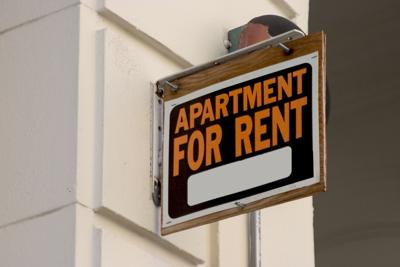Even though rent prices in ╬┌č╗┤½├Į and across Canada have declined in recent months, they are still high enough that╠²many renters are spending less on food and accumulating debt to make their monthly payments, a new report says.
According to the╠²Royal LePage 2025 Canadian Renters Report, Canadian rent prices are╠²5.7 per cent higher than they were two years ago and 12.6 per cent higher than they were three years ago.╠²
Over the past five years, prices have increased annually by an average of 4.1 per cent, outpacing wage growth, the report released Thursday╠²said.
In cities like ╬┌č╗┤½├Į and Vancouver, a surge in purpose-built rental and condo completions led to softening prices, the report noted, while demand decreased amid reduced international student visas and work permits as well as lower interest rates encouraging some renters to buy.
However, in Ontario, these “softer market conditions” are unlikely to last because developers are scaling back construction. The influx of new supply is expected to taper off significantly in 2027 and 2028, said╠²Amrit Walia, a sales representative at Royal LePage Signature Realty, in the report.
“Rent growth has gone up tremendously ŌĆ” In the end of 2022 and 2023 especially, it went above the normal trend line where it should have,” Walia said in an interview. “But it has not come down drastically.”
Undocumented workers in the construction sector are also awaiting promised help in getting status.
Even with these softer conditions, renters surveyed reported by making sacrifices to make ends meet.
In Ontario, 38 per cent of renters said they spend between╠²31 and 50 per cent of their net income on monthly rent costs, and 15 per cent said they spend more than half of their income on rent. Thirty-five per cent of renters in Ontario said they spend 30 per cent or less of their income on rent.
In order to afford rent, 39 per cent of Ontario tenants said they have reduced spending on groceries and food; 32 per cent said they have reduced contributions to savings or retirement; and 22 per cent said they have taken on credit card debt.╠²Respondents could select more than one answer, the report noted.
Some 1,850 Canadian renters aged 18 and older were surveyed across Canadian cities including ╬┌č╗┤½├Į between June 2 and June 9 of this year, the report said.
More than half of Ontario renters plan to own property in the future
Fifty-five per cent of Ontario tenants surveyed said they plan to buy property in the future, with about 15 per cent of renters planning to buy in the next two years and 21 per cent planning to buy in the next two to five years, the report found.
Among those who do not plan to purchase property, half said their income will not allow them to buy in their desired neighbourhood; 43 per cent said renting is more affordable; and 43 per cent said they don’t want the responsibilities of maintaining a property.╠²Respondents could choose more than one answer.
Additionally, 28 per cent of tenants said before signing or renewing their existing lease, they considered buying a property, instead. Of those respondents, 43 per cent said╠²they chose to keep renting because╠²they are waiting for prices to go down, 34 per cent said they are waiting for interest rates to decline further, and 34 per cent said they couldn’t qualify for a mortgage or financing.╠²Respondents could choose more than one answer.
In ╬┌č╗┤½├Į, at least, Walia said condo prices are unlikely to grow for the next four to six months, with╠²any price changes likely dependent on the size of the condo.╠²
Small condos up to 480 square feet have a greater chance of seeing price reductions compared to one-plus-dens or two-bedroom units, which are seeing more demand, he said.
”(Renters) don’t want to pull the trigger to buy,” he said. “They think they’re going to outgrow ŌĆ” that kind of condo in a year or two, where you should be buying with a long-term mindset.”































To join the conversation set a first and last name in your user profile.
Sign in or register for free to join the Conversation